In response to the development needs of the “Belt and Road” initiative, aimed at promoting the disciplinary construction of Country and Area Studies and advancing Middle Eastern research in both depth and substance, the School of Foreign Languages, Peking University (PKU), and the Center for Middle Eastern Studies, PKU, held the Seminar on The Kurdish Issue from the Perspective of Country and Area Studies and the book launch for Research on the Iraqi Kurdish Issue (1958-2003) on November 15, 2024. The event brought together over 30 experts and scholars from more than 10 domestic universities, research institutions, and publishing units, including PKU, Tsinghua University, China Social Sciences Press, Chinese Academy of Social Sciences, China Institutes of Contemporary International Relations, Renmin University of China, Beijing Language and Culture University, Shanghai International Studies University, Northwest University, and Ningxia University. Participants engaged in in-depth exchanges focusing on the construction of Foreign Language disciplines and Country and Area Studies in the new era, as well as the significant academic and practical importance of research on the Kurdish issue in the Middle East. Nearly 100 faculty and students attended the event.
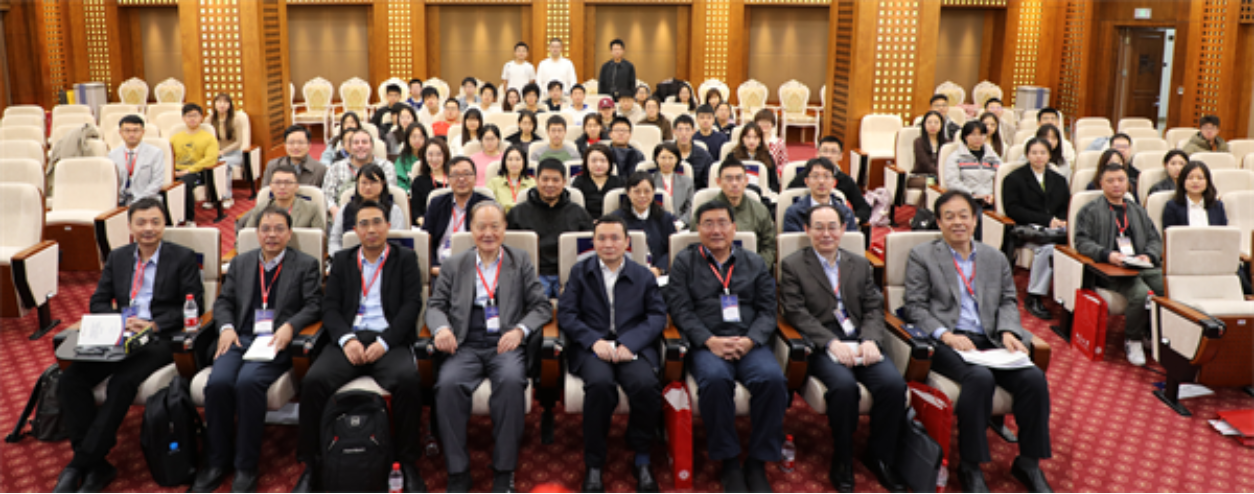
Conference Venue
Distinguished attendees included Wu Sike, former Special Envoy of the Chinese Government on the Middle East Issue and first Ambassador Extraordinary and Plenipotentiary of China to the Arab League; Wang Lincong, Vice President of the Institute of West Asian and African Studies, Chinese Academy of Social Sciences (CASS), and President of the Chinese Association of Middle Eastern Studies; Li Huaxin, former Chinese Ambassador to Iraq, Syria, and Saudi Arabia; Zhu Huabin, Assistant Editor-in-Chief of China Social Sciences Press; Chen Ming, Dean of the School of Foreign Languages and Director of the Center for Eastern Literature, PKU; Fu Zhiming, Vice Dean of the School of Foreign Languages, PKU, and Sultan Qaboos Professor of Arab Studies; Wu Jiewei, Vice Dean of the School of Foreign Languages, PKU; Lian Chaoqun, Tenured Associate Professor and Deputy Head of the Department of Arabic, PKU; and Li Ruiheng, Assistant Professor at the School of Foreign Languages, PKU, and author of the new book Research on the Iraqi Kurdish Issue (1958-2003), along with related faculty from various institutions. The opening ceremony was presided over by Fu Zhiming.
Fu Zhiming expressed that autumn is the season of harvest. Following the creatively organized PKU Forum sub-forum titled “Regional Connectivity and Sustainable Development among China, Central Asia, and the Middle East”, they now welcomed the Seminar and book launch. He extended a welcome to all guests and thanked the participating experts and scholars for their support.
PKU welcomed the guests and thanked all sectors of society for their support for PKU's work in Country and Area Studies. He expressed his hope that the experts and scholars would frequently visit PKU to engage in exchanges and share their experiences with students. Subsequently, he pointed out that as high-quality development of the “Belt and Road” advances, the importance of the Middle East to China becomes increasingly prominent. Facing profound changes unseen in a century, there is an urgent need for China to enhance its understanding of the Middle East. Against this backdrop, young scholars should shoulder the responsibilities of the times and make greater contributions in the field of Middle Eastern studies. The research conducted by Li Ruiheng is precisely the kind of foundational yet highly significant work that deserves attention. He hoped this conference would raise awareness from various sectors and that the research could eventually be translated into Arabic and English, allowing the international academic community to better understand China’s perspectives on regional issues. Students in foreign language programs engaged in Country and Area Studies should take this as an example and contribute to China’s research in these fields within their own areas of expertise.
Wu Sike congratulated the conference on its convening. He noted that multi-ethnic structures are a prominent feature of the Middle East, and managing relations among diverse ethnic groups is a major practical issue for the stability and development of Middle Eastern countries. The Kurdish people, as the fourth largest ethnic group in the region, represent a perennial topic. Against the backdrop of major power rivalry, it is also an issue constantly renewed across national, regional, and global dimensions. Li Ruiheng’s research aptly meets the needs of academic inquiry, serving as a successful example of Country and Area Studies with high academic value. Furthermore, as Iraq is a key node in regional connectivity, Li’s research on the Kurdish issue within its borders holds practical significance. Additionally, Wu Sike pointed out that Chinese research institutions have already achieved fruitful results in the field of Middle Eastern studies, particularly the Department of Arabic at PKU, which, as the cradle of Arabic language teaching in China, has made significant contributions. He encouraged the students present to inherit and carry forward the research spirit of senior scholars, to be willing to engage in dedicated, patient research, to excel in fieldwork, and to make unique contributions to the “Belt and Road” construction.
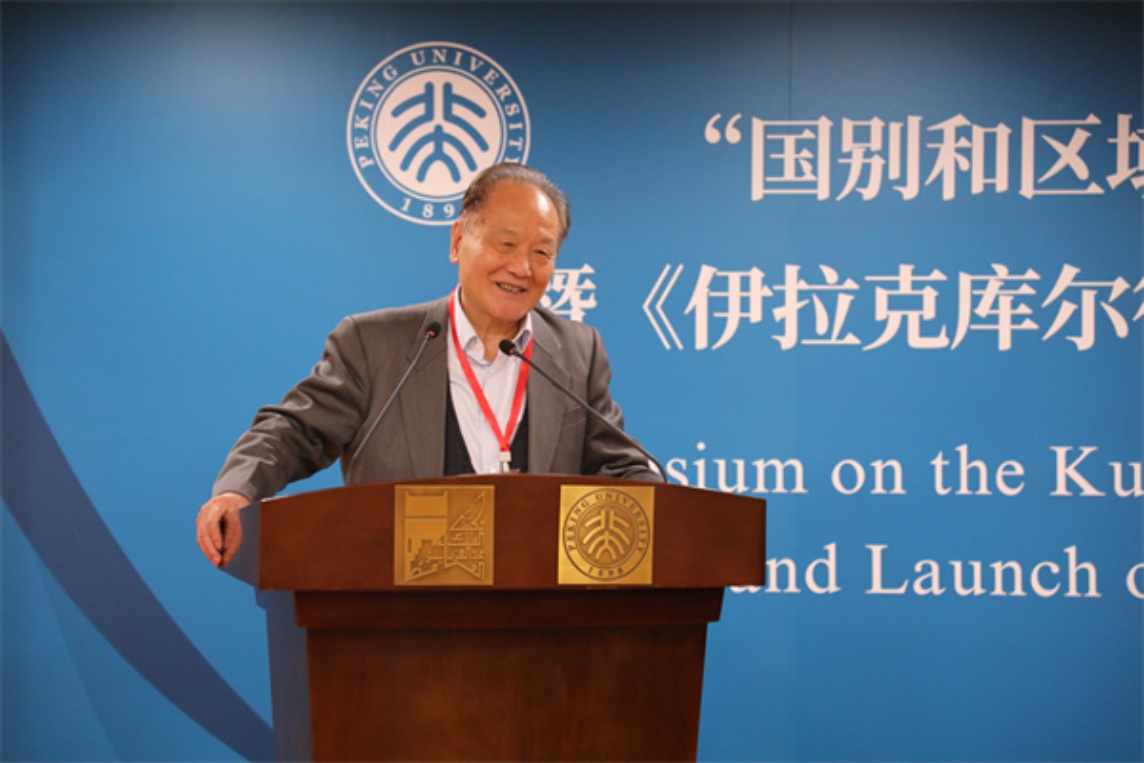
Wu Sike delivering the address
Wang Lincong, on behalf of the Chinese Association of Middle Eastern Studies, congratulated the conference, thanked the participants for their emphasis on and support for Middle Eastern studies, and congratulated Li Ruiheng on his academic achievement. He stated that PKU is a leading institution for Middle Eastern studies in China and one of the founding units of the Chinese Association of Middle Eastern Studies, having made substantial contributions and achieved numerous accomplishments in academic research. This conference is yet another manifestation of its leading role. The publication of Research on the Iraqi Kurdish Issue (1958-2003) not only helps promote and perfect the knowledge system of China’s Middle Eastern studies but also effectively addresses the topic of how to advance the development of the currently highly focused discipline of Country and Area Studies. Wang Lincong reviewed the history of domestic academic research on the Kurdish issue, pointing out that Li Ruiheng’s research has two distinctive characteristics compared to previous work: first, it emphasizes the use and analysis of original archives, enhancing the reliability of the research; second, it focuses on analyzing the Kurdish issue in Iraq from three levels: local and central government, society and state, and domestic and international relations, representing an exploration in epistemology and methodology. Finally, he expressed the hope that all sectors of society would strengthen cooperation to promote the disciplinary development of Country and Area Studies.
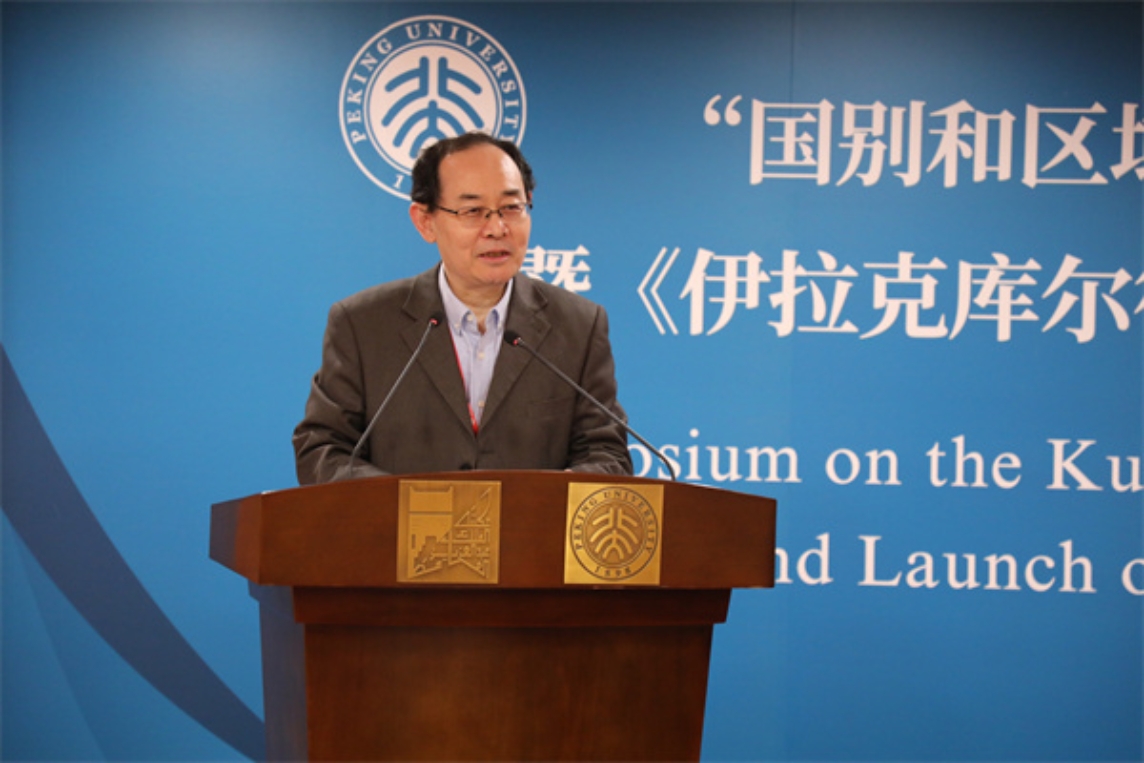
Wang Lincong delivering the address
Chen Ming, on behalf of the PKU School of Foreign Languages, welcomed the guests and thanked all sectors of society for their support for the development of the School and its foreign language disciplines. He emphasized that facing profound changes unseen in a century, the development of Country and Area Studies is urgent, and the construction of its discourse is of great significance. Based on this, foreign language disciplines shoulder a historical responsibility. Dean Chen Ming traced the development history of the international talent cultivation model at the PKU School of Foreign Languages, pointing out that the School has fully leveraged its advantages in East-West balanced, open, and inclusive talent cultivation. From the three dimensions of cultivating talent in Country and Area Studies—language skills, local knowledge, and disciplinary training—the School has established an undergraduate cross-disciplinary talent cultivation model and a graduate interdisciplinary talent cultivation model. Finally, he stated that Li Ruiheng is a successful example of the School’s innovative talent cultivation model. In the future, while improving the disciplinary system and enhancing academic standards, the School will cultivate more outstanding young talent meeting national development needs, providing a model for foreign language talent cultivation nationwide.
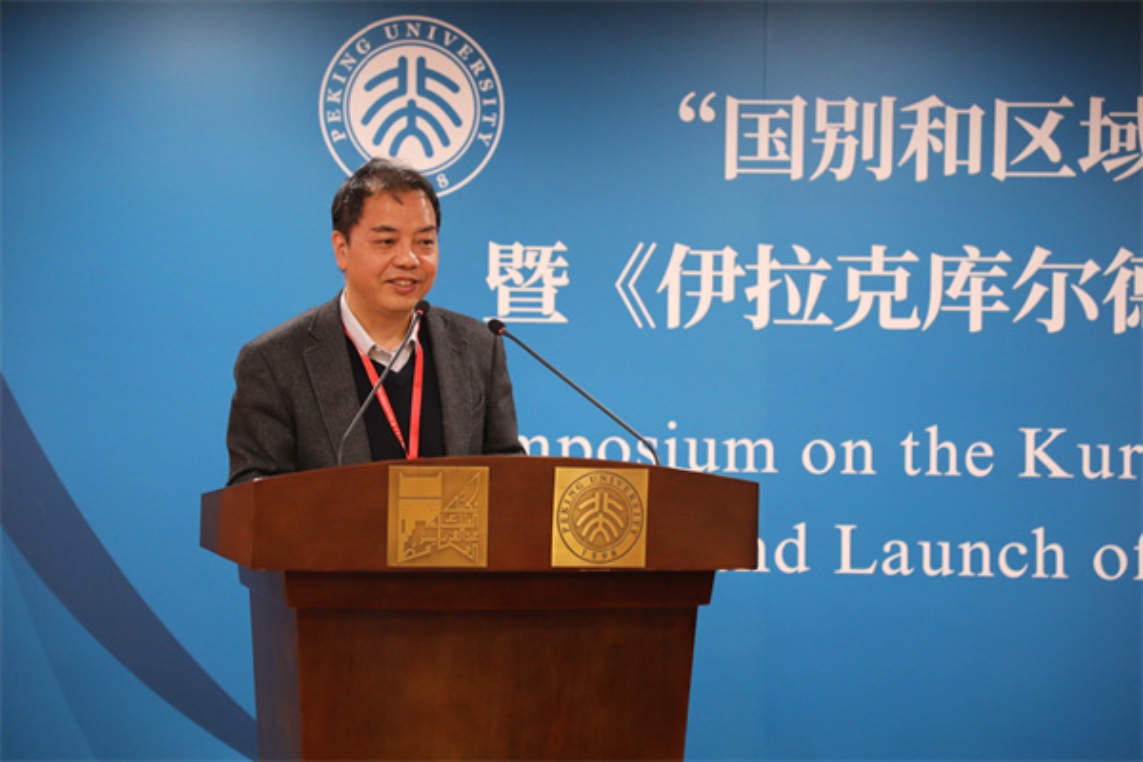
Chen Ming delivering the address
The book launch session was presided over by Dr. Fan Juanrong, editor of the Think Tank Achievement Publishing Center at China Social Sciences Press. Fan Juanrong stated that this book is a representative work of the National Social Science Fund Doctoral Dissertation Publication Project, fully demonstrating its academic value and publishing quality.
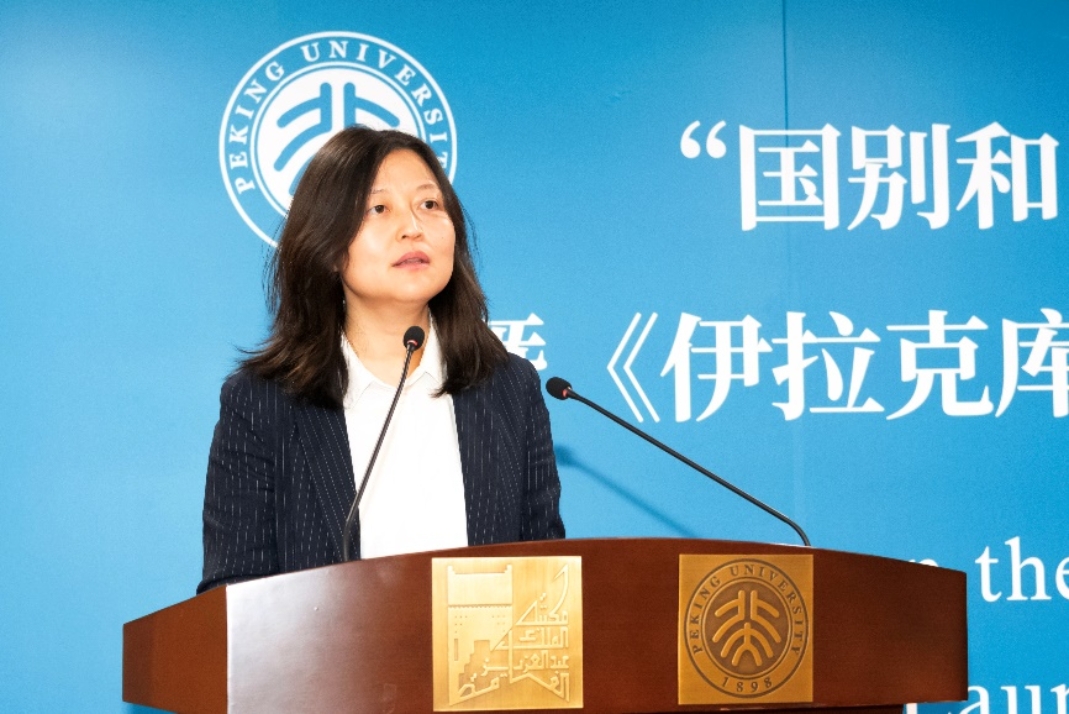
Fan Juanrong presiding
Zhu Huabin first extended warm congratulations to the author, Li Ruiheng, on behalf of the Press. He pointed out that this book is an outstanding work on the Kurdish issue, not only based on solid research but also exhibiting high objectivity, comprehensiveness, and accuracy. As an excellent piece of Area Studies, the book not only helps China gain a deeper understanding of Iraq's domestic and foreign affairs, political system, social structure, history, and culture but also provides the international academic community with the unique perspectives and profound insights of Chinese scholars. Finally, he stated that China Social Sciences Press has long adhered to the path of academic publishing, and its achievements have been consistently recognized by the academic community at home and abroad. This is thanks to the Press’s long-term persistence and unremitting efforts in academic publishing, as well as the support and assistance of experts and scholars. He sincerely thanked all those who worked hard for the publication of this book and looked forward to publishing more excellent academic works in the future to contribute to the development of Chinese academia.
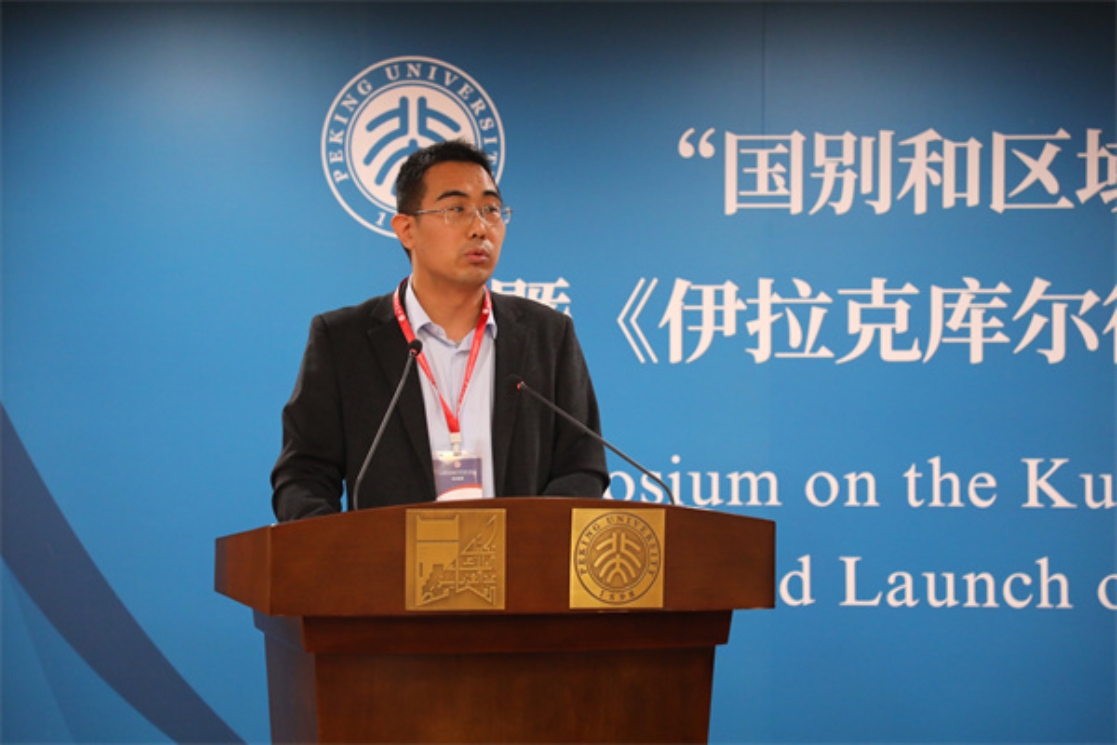
Zhu Huabin delivering the address
Li Ruiheng first extended a warm welcome to all guests and sincerely thanked the expert faculty for their efforts and support in the publication of this book. Li Ruiheng pointed out that the Kurdish issue is characterized by its historical nature, complexity, depth, and penetrating influence, making research on it highly significant both practically and academically. This book represents his exploration and attempt in this field, and he will continue efforts to contribute to deepening research in the future. Furthermore, Li Ruiheng emphasized the advantages provided by foreign language disciplines in his research process. He believes that foreign language disciplines provide an essential linguistic foundation and cultural background, enabling him to understand and explore the Kurdish issue more deeply. Simultaneously, he is confident that PKU will achieve greater progress in Kurdish studies in the future, including the expansion of the faculty, improvement of the curriculum system, enhancement of teaching materials, and enrichment of academic achievements, thereby making greater contributions to China's research on the Kurdish issue and Middle Eastern studies.
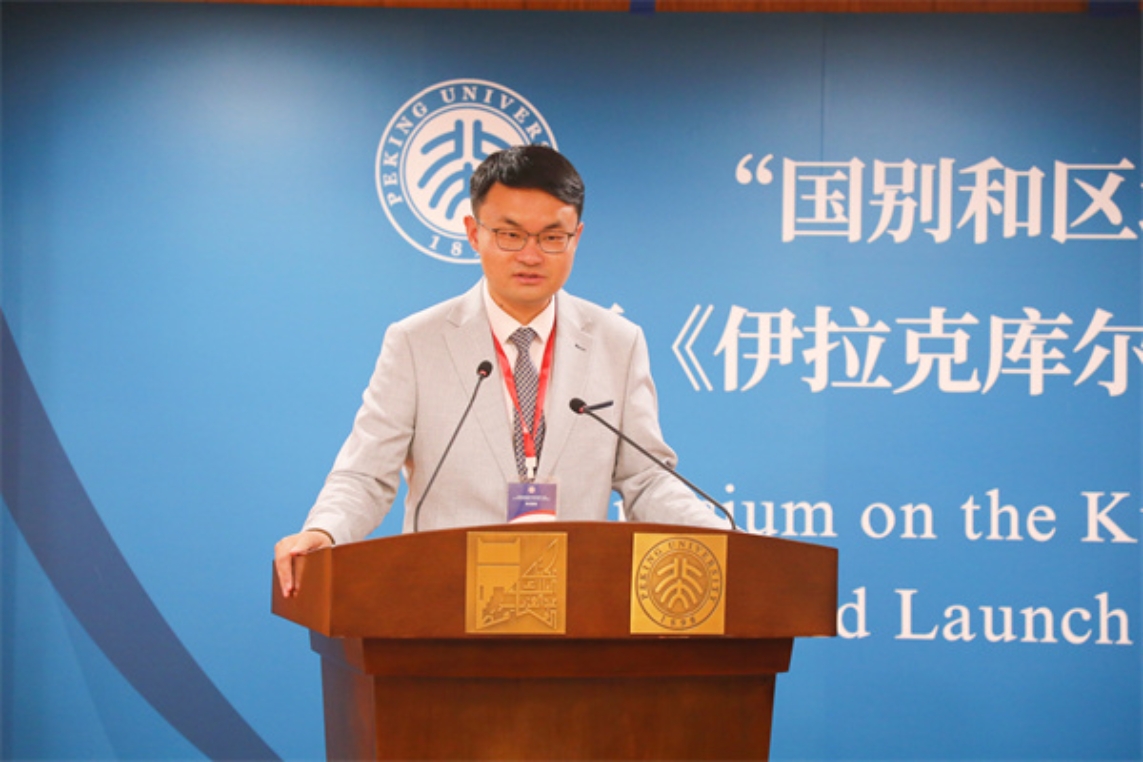
Li Ruiheng delivering speech
Wu Sike, Wang Lincong, Li Huaxin, Zhu Huabin, Chen Ming, Fu Zhiming, Wu Jiewei, and Li Ruiheng jointly unveiled the new book, after which all guests took a group photo.
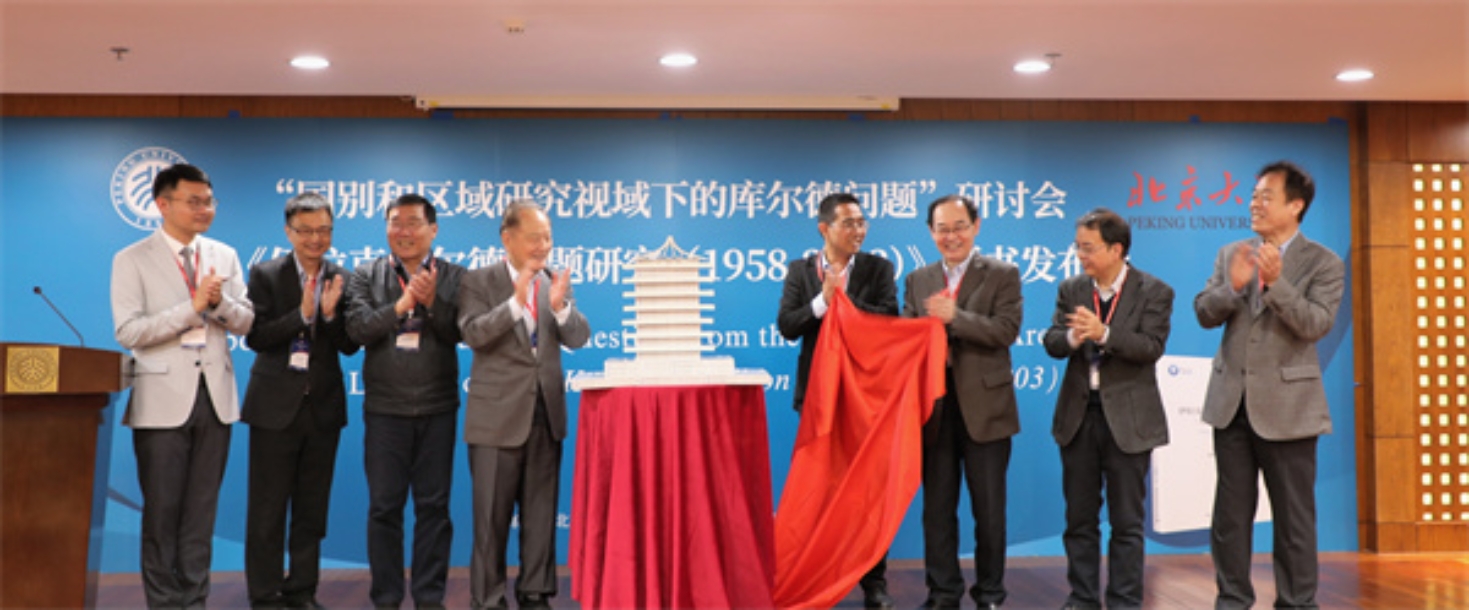
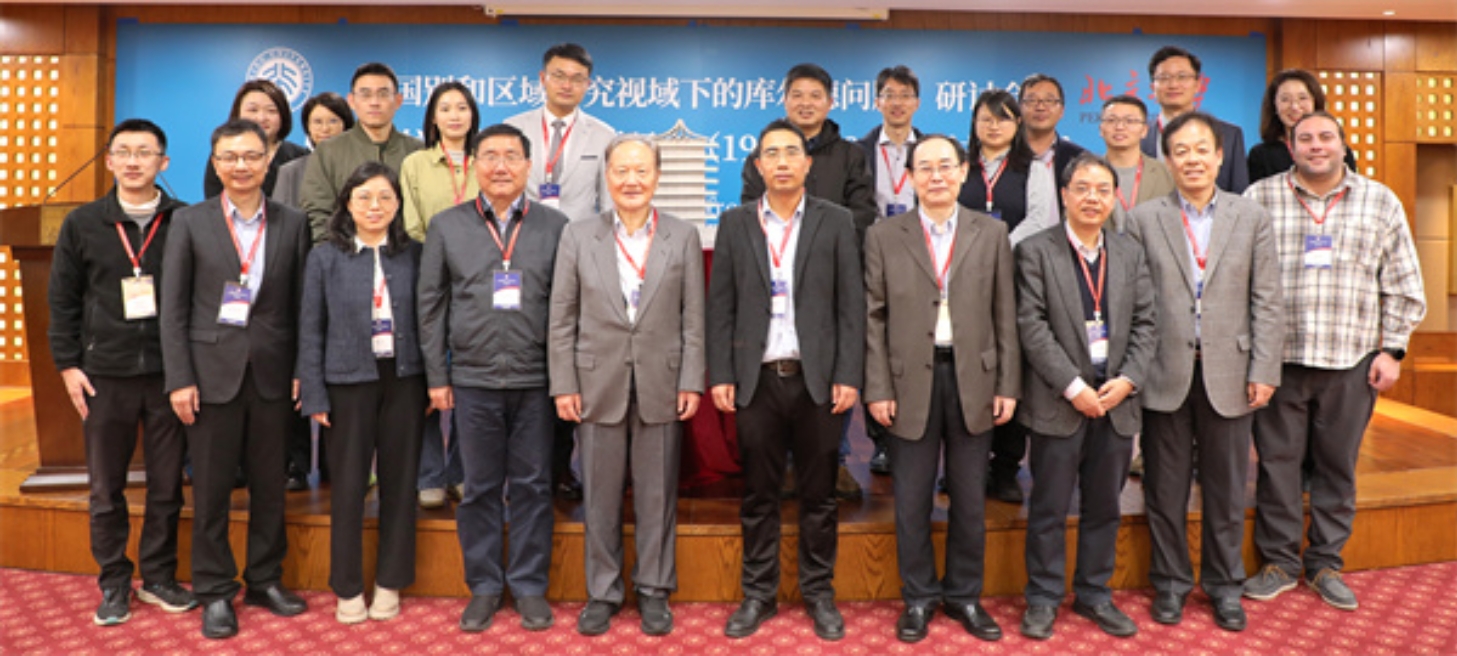
New Book Unveiling and Group Photo of Attending Guests
The keynote speech session was chaired by Wu Jiewei. He first introduced the background and significance of the seminar to the guests and expressed deep expectations for the various research projects and future development of the School of Foreign Languages. Wu Jiewei pointed out that the School of Foreign Languages, as an important base for academic research, has always been committed to promoting interdisciplinary integration and exploring new research methods and paths. He believed that through in-depth exchanges and intellectual engagement at this seminar, new vitality and inspiration would undoubtedly be injected into Kurdish studies at the School of Foreign Languages and the broader academic community.
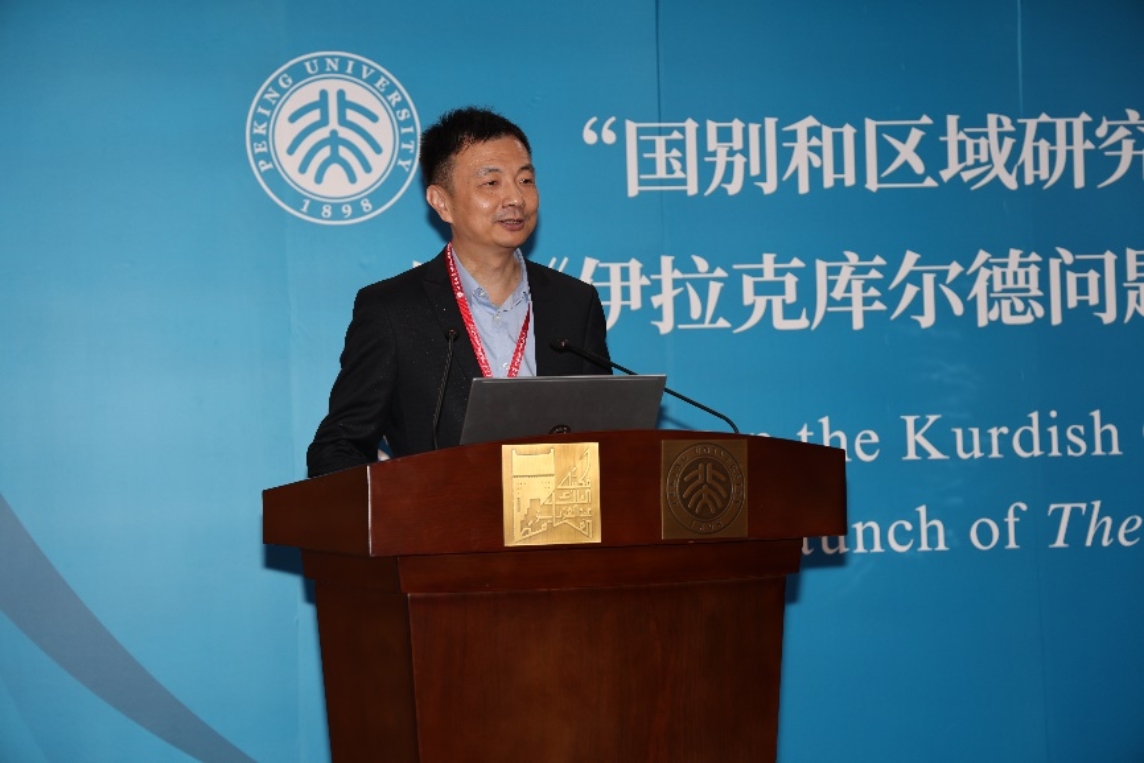
Wu Jiewei presiding
Li Huaxin shared his unique insights into the Kurdish issue, drawing on his two postings in Iraq. To gain on-the-ground understanding of the situation in the Iraqi Kurdistan Region, Li Huaxin visited Erbil and Sulaymaniyah twice in 2006 upon invitation. There, he found that Kurds displayed a friendly attitude towards Chinese people, reflected not only in daily interactions but also in a mutual desire for respect and understanding. However, he also keenly observed the complexity and long-term nature inherent in the Kurdish issue. As a historical legacy issue, the Kurdish problem involves multiple factors such as national self-determination, geopolitical interests, and religious differences. Its resolution is by no means achieved overnight but requires long-term effort and wisdom from all parties involved. Li Huaxin pointed out that the Kurdish issue is a major hotspot in the Middle East with far-reaching and widespread impact, attracting high attention from major world powers. He believed that resolving this issue requires the joint efforts of the international community, as well as in-depth discussion and practice regarding the country’s development path by various factions within Iraq.
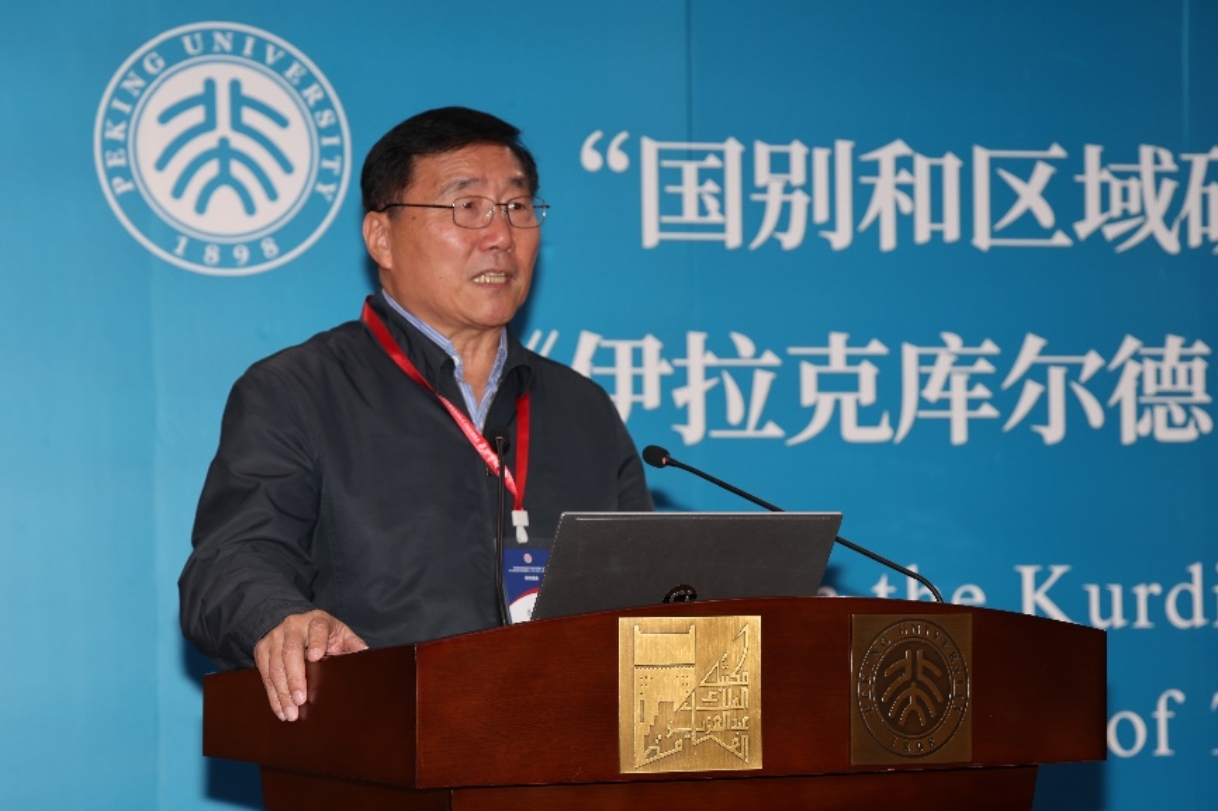
Li Huaxin delivering address
Wang Lincong shared his unique insights on two core issues: “Defining the Nature of the Kurdish Issue” and “Approaches to Resolution,” from academic depth and breadth. Wang Lincong first pointed out that when defining the Kurdish issue, three key elements need focus: first, the existence of ethnic persecution and discrimination; second, the interference and involvement of external forces; and third, whether the policies of neighboring countries serve as tools for subverting the internal affairs of adjacent states. He emphasized that the Kurdish issue transcends the scope of a single ethnic problem and involves multiple levels such as social development and international relations. Regarding solutions, Wang Lincong believed that achieving balanced development, effectively promoting national and social integration, and enhancing state and social governance capabilities are the best ways to address the Kurdish issue. Simultaneously, efforts should be made to prevent the Kurdish issue from becoming a geopolitical tool exploited by external forces. Finally, Wang Lincon concluded by emphasizing that promoting the deep integration of state and society and enhancing national cohesion are core to advancing the building of a community with a shared future for mankind and achieving genuine common development.
Fu Zhiming elaborated on the construction of the teaching system at the PKU School of Foreign Languages and the Department of Arabic. He pointed out that language not only connects China with the world but also links the past with the future; its essence is thought rather than a mere tool. PKU’s foreign language education is diversified, covering specialized foreign languages, distinguished foreign language programs, and the “Belt and Road” public foreign language model, aiming to meet the learning needs of students from different backgrounds. He stated that the Department of Arabic enhances its specialized development, focusing not only on the language itself but also extensively engaging in multidimensional research encompassing society, politics, economy, and culture. Since the publication of the Chinese translation of History of the Arabs, the Department has produced numerous cross-disciplinary academic works. The new book *Research on the Iraqi Kurdish Issue (1958-2003)* extends new areas in Middle Eastern studies and pioneers new paradigms in Area Studies. Dean Fu also emphasized that the Department of Arabic actively promotes international cultural exchanges, building linguistic bridges, and shared recent achievements in international exchange. Relying on over 60 teaching and research languages, the School of Foreign Languages is one of the comprehensive universities in China with the richest language resources, demonstrating unique comprehensive disciplinary advantages in the fields of language and literature, history and culture, and national condition and society studies for different countries and regions. Finally, Fu Zhiming expressed sincere gratitude for the rich primary materials and support from all sectors of society that underpin PKU's Middle Eastern research, emphasizing that continuously promoting the deep integration of foreign language education and Country and Area Studies is of great significance for deepening international understanding and cooperation.
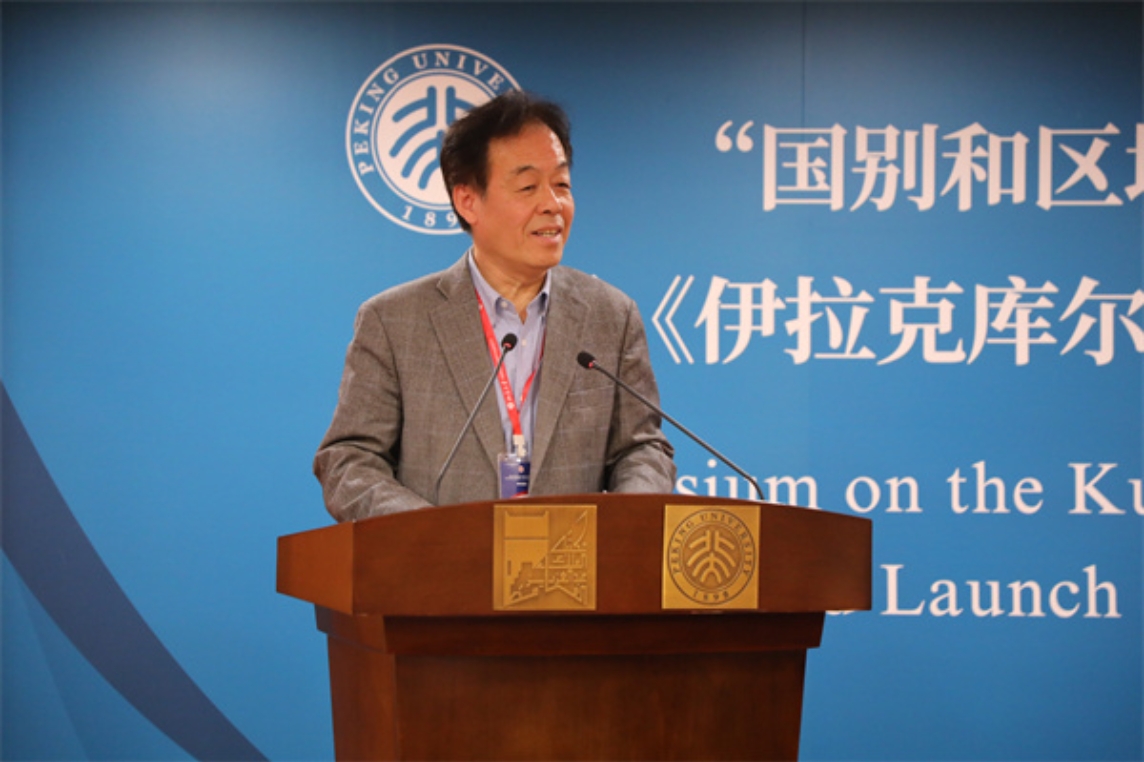
Fu Zhiming delivering address
The theme of the first seminar session was “Kurds in Historical Context and Civilizational Exchange,” chaired by Zhan Shiming, Director of the Editorial Office of West Asia and Africa at the Institute of West Asian and African Studies, CASS. Bai Ye, Lecturer at the School of Middle Eastern Studies, Beijing Language and Culture University, in his report “The Image of Kurds in Medieval Arabic Ancient Books,” introduced three main theories regarding the origins of the Kurdish people: the Nomadic Persian theory, the Yemeni theory, and the theory of descent from Sulayman’s female servants. Records about Kurds in medieval historical materials are scattered throughout historical books, dictionaries, and travelogues, showcasing medieval Arabs’ perceptions and views of Kurds.
Lian Chaoqun, in his presentation “The Linguistic Factor in Iraqi State Building,” drawing on his expertise in sociolinguistics, explored in accessible terms the significant role language plays in Iraqi social transformations, offering attendees substantial material for reflection.
Zhang Yuan, Research Fellow at the Middle East Studies Institute, Shanghai International Studies University, and Deputy Editor-in-Chief of Arab World Studies, in her report “‘Daughters of the Sun’: A Case Study of Western Narratives on Iranian Kurdish Female Fighters,” drew on a small exhibition about Kurdish female fighters at the Institute of Arab and Islamic Studies, University of Exeter, to reconstruct the image of Iranian Kurdish women under Western narratives for the participants.
Li Ruiheng, in “The Kurdish Issue and the Making of Saddam Hussein,” explored how the perception of the Kurdish issue evolved within the Iraqi central government. He emphasized that only by deeply understanding Iraq’s national conditions, regions, political parties, and the ideological changes of key individuals can one better grasp the evolution of the Kurdish issue and provide a more comprehensive perspective for its resolution.
Finally, Zhu Quangang, Associate Research Fellow at the Institute of West Asian and African Studies, CASS, and Zhang Yuyou, Associate Professor at the Middle East Research Institute, Northwest University, provided comments on the four presentations from the perspectives of political science and history, respectively. Students present also actively sought advice from the scholars.
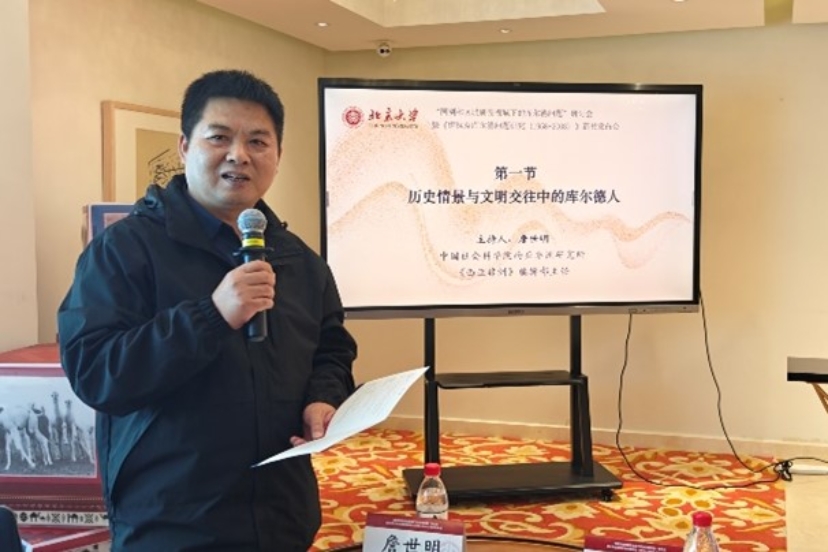
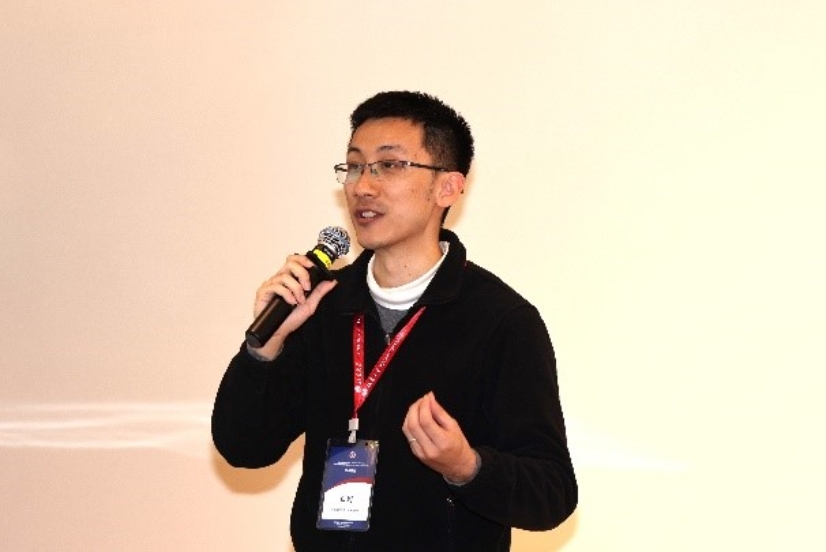
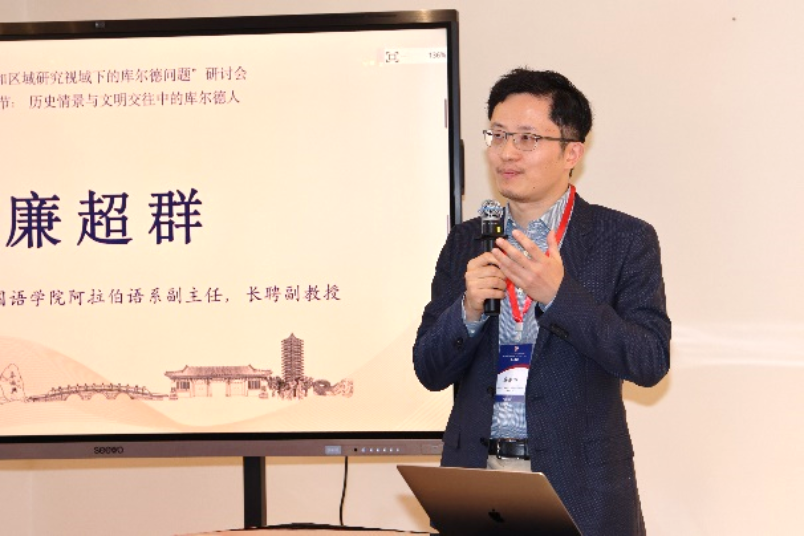
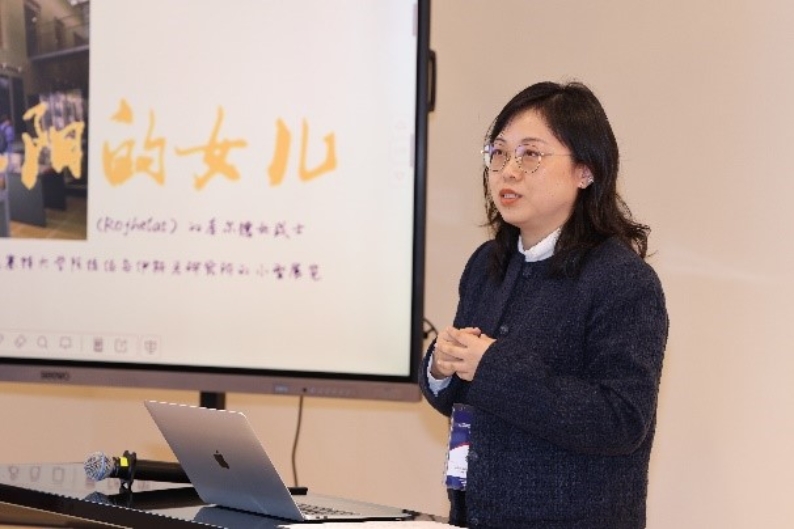
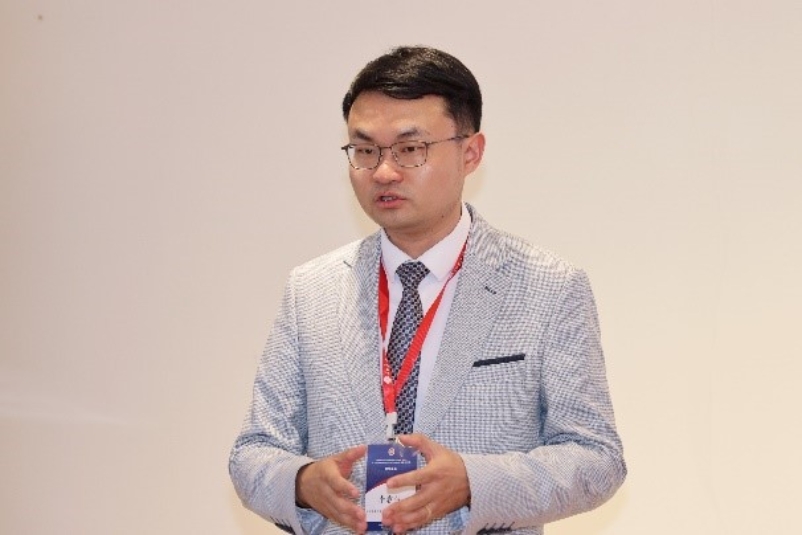
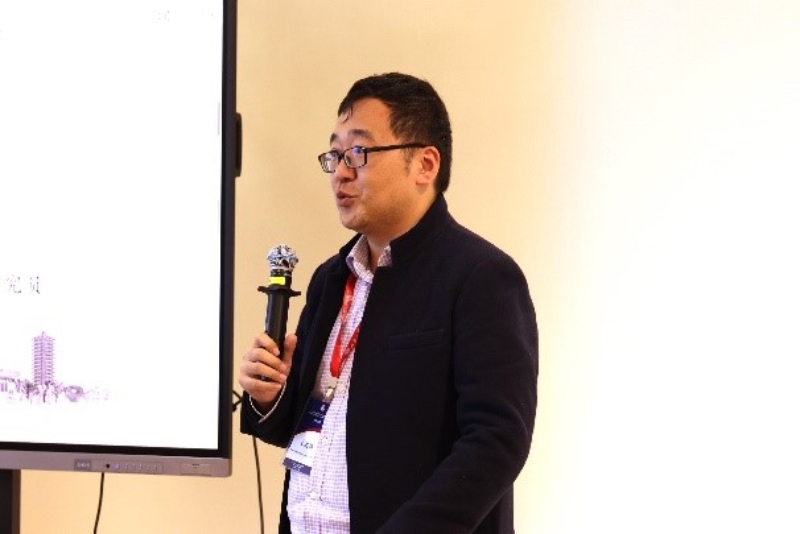
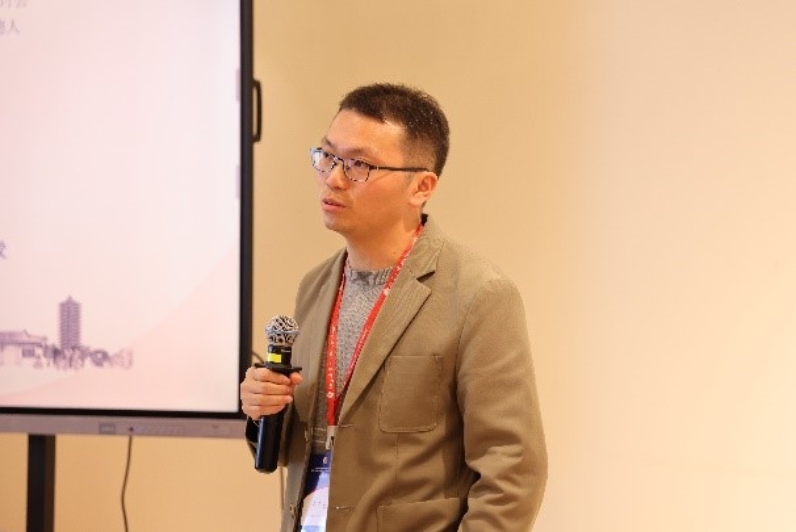
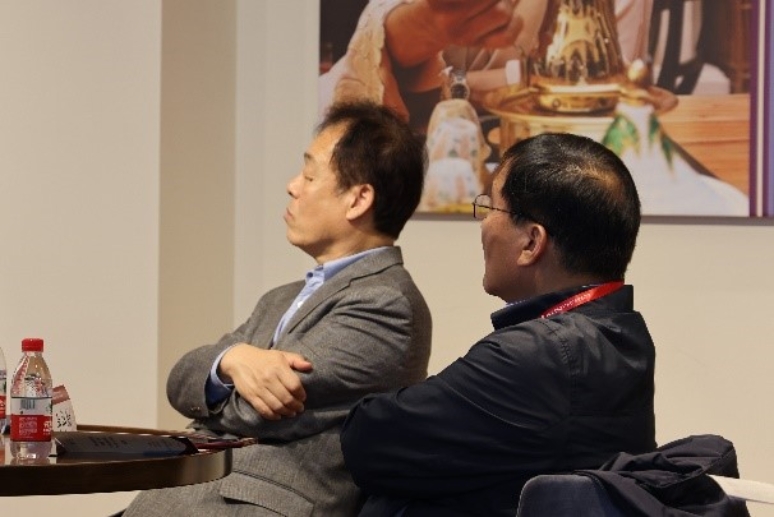
The second session of the seminar was themed “The Kurdish Issue between State Building and Geostrategy”, chaired by Wen Jing, Assistant Research Fellow at the Center for International Security and Strategy, Tsinghua University. Zhu Quangang, in his presentation “Revisiting the 2017 Iraqi Kurdistan Region Referendum: Process, Impact, and Reflection”, discussed the decline in the bargaining power position of the Kurdistan Regional Government during negotiations with the central government.
Tang Tianbo, Associate Research Fellow at the Institute of Middle Eastern Studies, China Institutes of Contemporary International Relations, in her report “China’s Interests and Policies in the Iraqi Kurdistan Region”, analyzed China’s main interests and policies in the Region. She provided a detailed analysis from three aspects: political interests, economic interests, and personnel interests, summarizing and reflecting on the characteristics of China's engagement with the Region as “three constants and two changes”, which determine the prospects and limits of bilateral relations.
Wei Liang, Associate Research Fellow at the Institute of West Asian and African Studies, CASS, in his report “Assessment of the Current Situation and Development Prospects of the Kurdistan Region under the Middle Eastern Upheavals”, provided an in-depth analysis of the background, current situation, and prospects of the Region’s autonomy issue. In recent years, Middle Eastern countries have shown strong demands for reform and development. Managing regional hotspot conflicts is a common choice made by the Middle East for development, and the trend of détente in the region remains strong, while the US will not reduce its influence in the Middle East. Under the broader context of Middle Eastern upheavals, the Iraqi central government has strengthened its control over the Region’s three main revenue sources—financial allocations, oil revenues, and border crossings—by first reclaiming financial authority, followed by personnel and management authority. Meanwhile, the Region faces struggles within and between political parties and has performed poorly in the context of major power rivalry. In summary, independence for the Region is very difficult.
Li Haipeng, Assistant Professor in the Department of Arabic, PKU, in his report “The Decision-Making Environment and Behavioral Logic of Israel-Hezbollah Interactions”, analyzed the historical context and policy evolution of interactions between Israel and Hezbollah from three angles: domestic politics, geopolitics, and military tactics. Regarding domestic politics in Lebanon and Israel, Hezbollah’s domestic base is the Shia Muslim community, and armed resistance is its main means of maintaining domestic mobilization capability; several Israeli military actions against Hezbollah have been related to election considerations. Geopolitically, understanding Hezbollah should be placed within the larger triangle of Israel, Iran, and Syria. Militarily, effective mutual deterrence between Israel and Hezbollah only formed after Israel’s “costly victory” in the 2006 conflict. Israeli tactics towards Hezbollah shifted from emphasizing both direct strikes and indirect pressure to focusing more on intelligence infiltration. These factors all influence the strategic choices of both sides. The 2024 pager explosion incident in Lebanon reflected a shift in Israeli strategy towards Hezbollah from management to eliminating its viable forces.
During the comment session, Niu Xinchun, Vice President of Ningxia University and Vice President of the Chinese Association of Middle Eastern Studies, analyzed the concepts of ethnicity and nation (guozu), parsed the historical opportunities for nation formation, and pointed out that nation building requires the modernization of social structures and the economy as conditions. Zhang Yuan noted that the research of the four presenting scholars excellently balanced theoretical concerns with factual details, introduced the history, columns, and submission scope of Arab World Studies, and welcomed submissions from scholars.
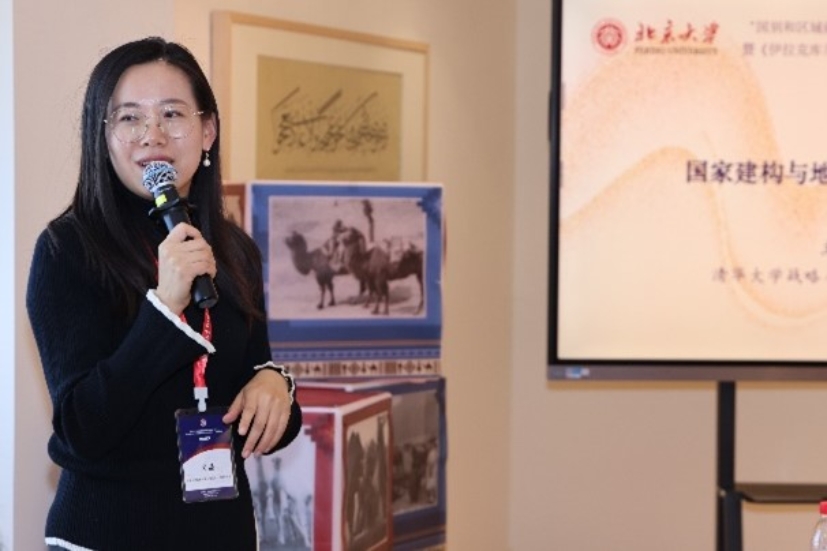
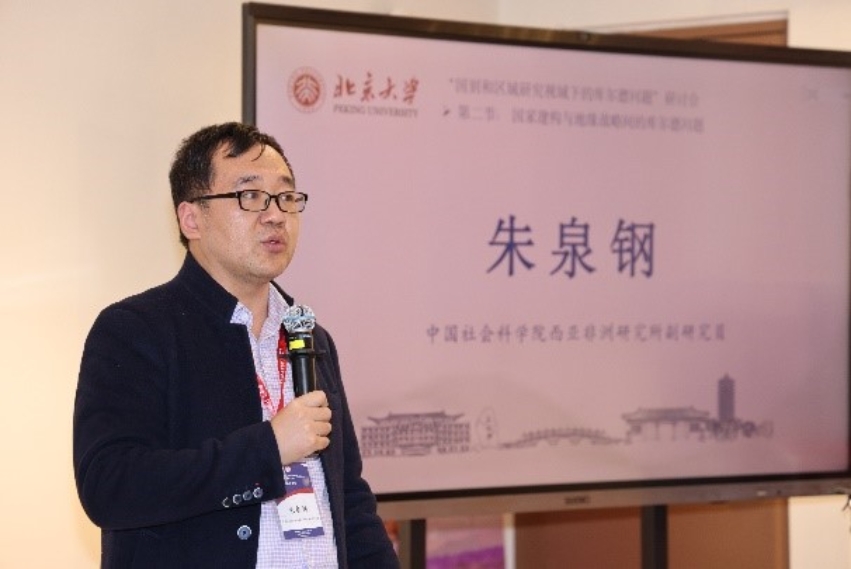
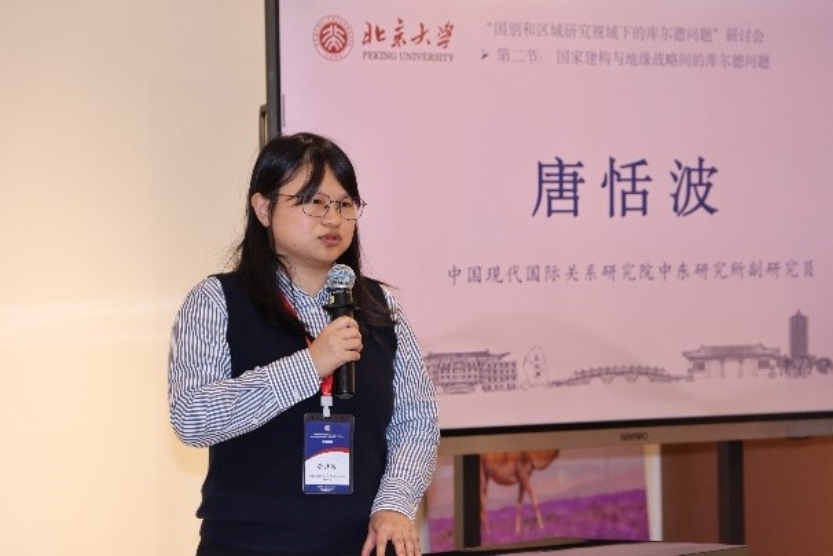
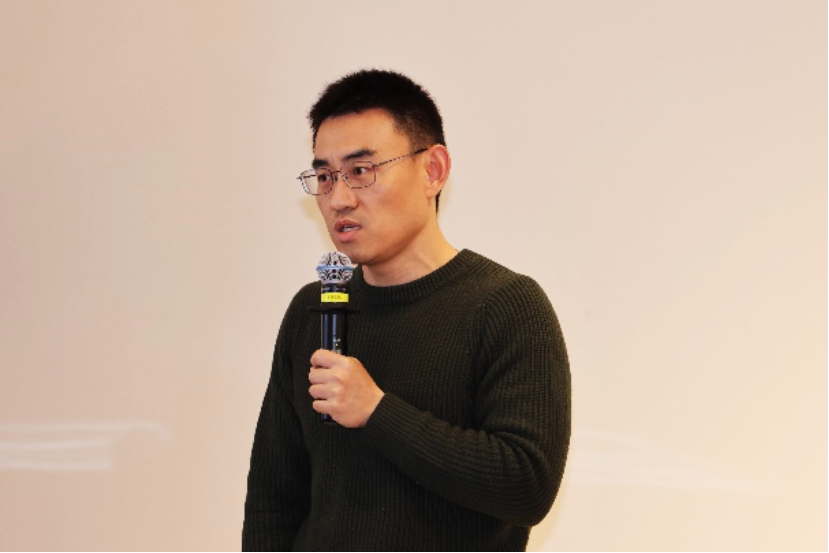
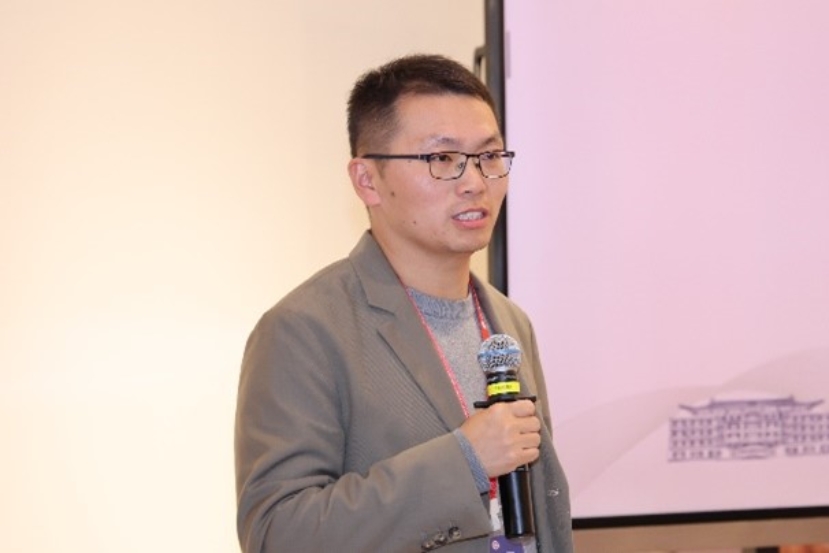
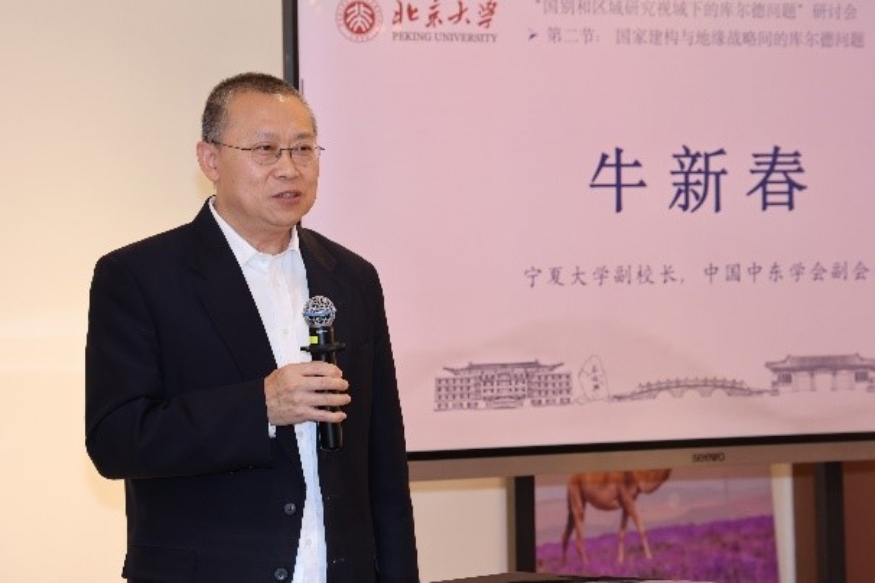
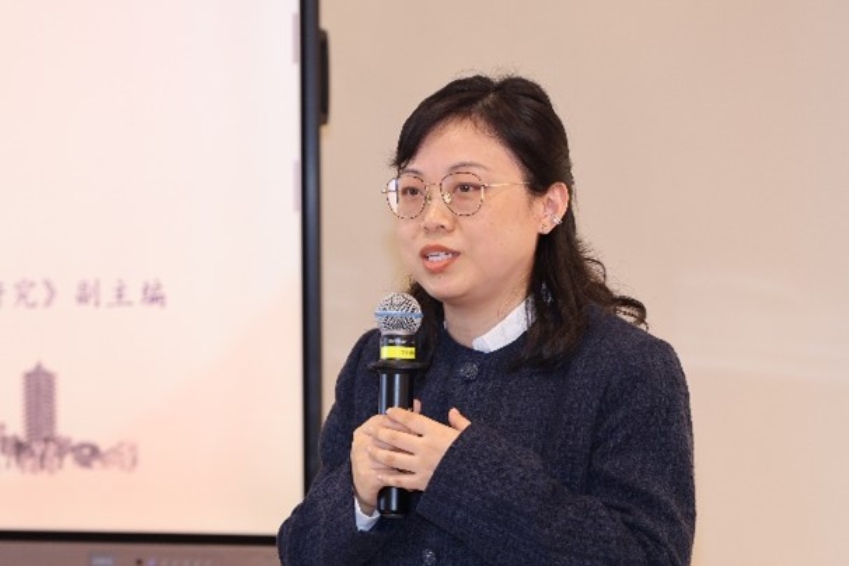
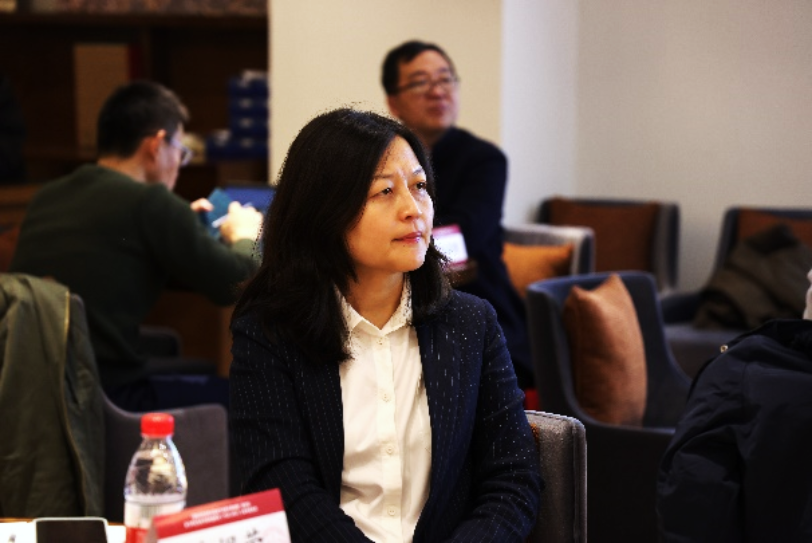
At the conclusion of the forum, Lian Chaoqun delivered the closing remarks. Lian Chaoqun pointed out that this forum, centered around one book and one topic, brought together talent and resources from multiple disciplines and institutions, presenting a complete academic chain from talent cultivation to the dissemination of results. This is precisely the paradigm that Regional and Country Studies should have: scholars from different disciplinary backgrounds forming academic communities around specific topics, enriching the understanding of the research subject, popularizing academic knowledge among the public, and benefiting government and corporate decision-making. Finally, Lian Chaoqun expressed heartfelt thanks to all colleagues who participated and the teachers and students who organized the conference, and declared the successful conclusion of the Seminar on The Kurdish Issue from the Perspective of Country and Area Studies and the book launch for Research on the Iraqi Kurdish Issue (1958-2003).
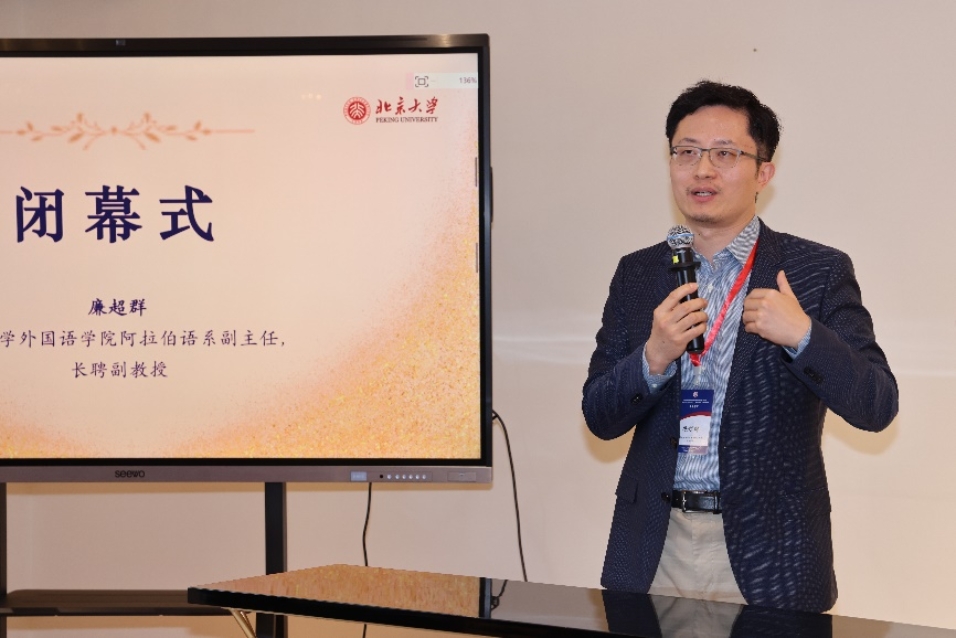
Lian Chaoqun presiding over the closing ceremony
Text: Yu Xinyu, Xu Zhengzhe, Kang Xiaowei
Photos: Wang Naimao, Ma Wenqiao, Jia Yiwei
Reviewed by: Li Ruiheng, Fu Zhiming
